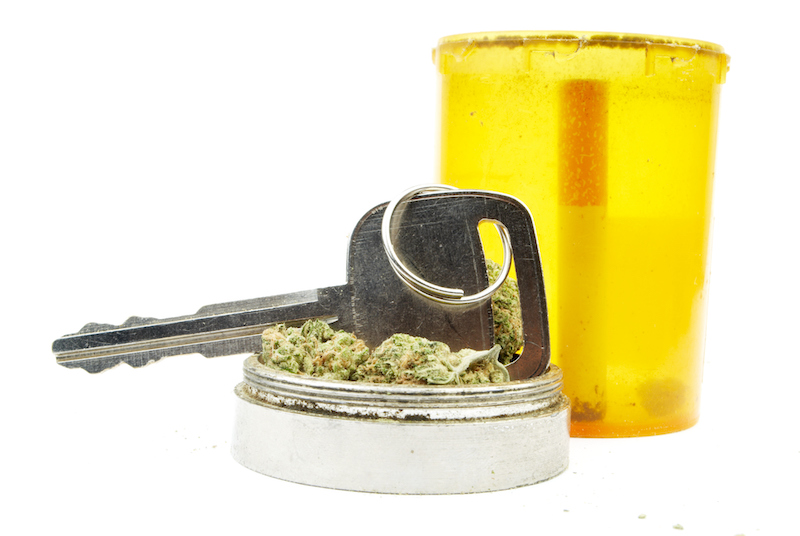
An estimated 1.5 million people are arrested for driving under the influence every year in the United States.
If you’ve been charged with a DUI, you probably have a lot of questions, like:
What does this mean for my future? Can I be fired for a DUI? How long is a DUI on my record?
The answers to those questions and more vary greatly based on the state where the offense takes place.
If you’re in Illinois, we can help you with the information you need. Here, we discuss Illinois DUI laws, how long you can expect it to stay on your record, and what to do if you receive a DUI charge.
Illinois DUI Laws
Many people associate DUIs with drunk driving, but you can receive a DUI charge if you drive under the influence of other substances as well, including marijuana.
If you’re living in Illinois, you need to be well aware of the state’s DUI laws so you know your rights if you’re pulled over.
Alcohol
The legal alcohol limit in Illinois is .08.
This means that if your blood-alcohol content (BAC) is over .08 as a non-commercial driver, you’re considered legally drunk. Upon receiving a breathalyzer, if your BAC is at or above that number, you can receive a DUI charge.
However, even if your BAC is lower than that, it doesn’t mean you’re in the clear. An officer can arrest you if there’s evidence that shows you were driving while impaired, regardless of your BAC levels.
When you’re driving a commercial vehicle, the threshold for BAC levels goes down to .04. And, if you’re under the age of 21, you’re considered legally drunk if your BAC is above 0.
Marijuana
Illinois permits the medical and recreational use of marijuana if you’re over the age of 21. However, that doesn’t mean you can operate a vehicle while under the influence of it.
If you’re found to be driving with more than 5 nanograms per milliliter of THC in your system, that’s considered driving under the influence of marijuana. As a result, you can receive a DUI charge.
How Long is a DUI on Your Record?
The state of Illinois treats DUI charges very seriously. This means it’s difficult to remove it from your record. When you want something taken off your record, the most common avenues to take are sealing your record or expunging the conviction.
Let’s take a closer look at your options when it comes to DUIs in Illinois.
Sealing Your Record
Thanks to the Criminal Identification Act, sometimes a criminal record can be sealed, which restricts access to your record. Essentially this means that your record still exists, but no one can access it unless they have an order from a judge.
This is an appealing idea, especially if you can’t get your conviction expunged. However, the state of Illinois doesn’t allow for the sealing of DUI records.
Expunging Your Conviction
An expungement means that the state destroys physical copies of your criminal record and removes your name from records in regard to the crime. This is a great option for many felony and misdemeanor convictions.
However, here in Illinois, you cannot expunge a DUI conviction. This means it stays on your record forever.
Other Options
So, you can’t seal a DUI record or expunge it, but there are a few ways to remove it from your record.
You go to trial, and are then found not guilty, you can expunge the arrest from your record. If you’re found guilty, however, then you’re out of luck.
Another option is to get a governor’s pardon to expunge the conviction from your record. You can talk to your attorney about this option, but keep in mind that it’s extremely rare to get a pardon for a DUI.
Consequences of a DUI
If you receive a DUI charge, you must face the consequences. You can face up to a year in prison for your first offense and you may have to pay a fine of up to $2,500.
Furthermore, you could face a license suspension. If you’re a repeat offender, you may receive mandatory community service hours in addition to jail time and fines. If your BAC is above .16, then you may receive a felony charge with more serious consequences.
In addition to the immediate penalties, having a DUI on your record can make it harder for you to get a job in the future.
Since it’s so difficult to remove a DUI charge from your record in Illinois, your best bet is to avoid driving while under the influence of drugs or alcohol.
What to Do if You Receive a DUI Charge
Even if you’re normally careful, mistakes sometimes happen. You might feel fine when you get behind the wheel, not realizing you shouldn’t drive, or you might just make a foolish decision to drive, even when you know you shouldn’t.
However, you don’t have to face a DUI charge alone. Instead, reach out to an experienced lawyer who can help.
When looking for the right attorney, make sure to do some research ahead of time and read through reviews from past clients to give you an idea of what to expect. Also, don’t hesitate to talk to a few different lawyers before making your decision.
After all, choosing the wrong lawyer could be the difference between a permanent charge on your record or a reduced penalty.
Here to Help During This Difficult Time
If you’re worried about having a DUI on your record, don’t trust your case to just any lawyer. Instead, look to the experts here at the Law Offices of John M. Quinn & Associates, Ltd.
We’ve got experience with cases just like yours and you can lean on us for guidance during this difficult time.
Contact us today to schedule a free consultation to learn more about how we can help you.


